Politics through the Lens of Economics
Lecture 12
Survival of Inclusive Institutions:
19th-century UK and 20th-century US
January 8, 2019
Masayuki Kudamatsu
Chapter 11 of Why Nations Fail
Week 13
Chapter 6
Week 11
Chapter 14
United Kingdom
in 19c
United States
in early 20c
Republic of Venice
Roman Republic
Weeks 11-13: Survival of Inclusive Institutions
Botswana
US South
in the 1950s-1960s
Brazil
since the 1970s
Week 12
Chapter 11
Today's theme:
What makes inclusive institutions survive?
Inclusive
institutions
Rule of law
Economic growth
with
income equality
Free Media

Today's Road Map
Rule of Law
Free Media
Expansion of Inclusive Institutions
Black Act in 19th-century U.K.
Franklin Roosevelt's attempt of court-packing in U.S.
Robber Barons in early 20th-century U.S.
First and Second Reform Acts in UK
Today's theme:
What makes inclusive institutions survive?
Inclusive
institutions
Rule of law
Economic growth
with
income equality
Free Media
Rule of Law (pp. 305-307)
Laws should not be applied selectively or arbitrarily
Nobody is above the law
Emerged as a by-product of pluralist political institutions
To ensure that no one amasses too much power
Whigs and Black Act in 19th-century U.K.
Franklin Roosevelt's attempt of court-packing in U.S.
How the rule of law protects inclusive institutions
Two examples:
Whigs
Members of the Whig political party, founded in 1670s
Represent the interests of trans-Atlantic traders (Lecture 5)
Play active role in Glorious Revolution of 1688
Dominate Parliament for 1714-1760
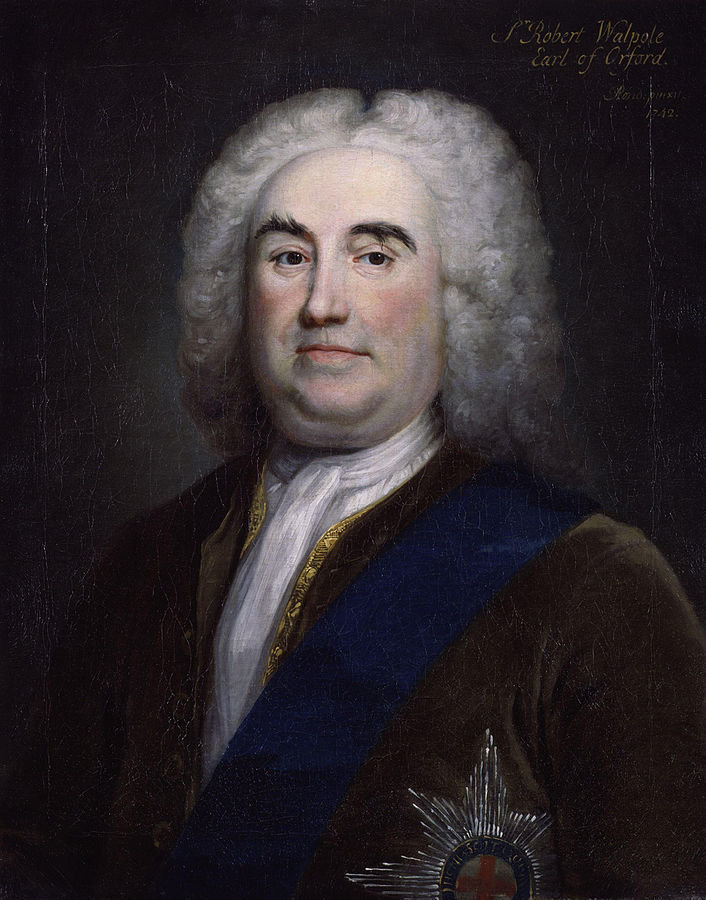
Prime Minister (1721-41)
Acting Commander in Chief
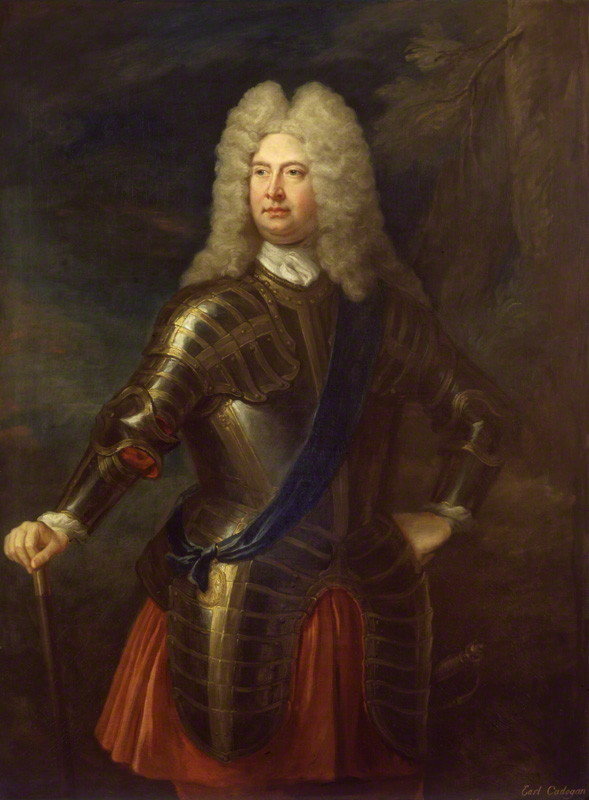
Some prominent Whigs
Whigs' encroachment of commoners' rights
Whigs build a grand house & ornate gardens with a deer park
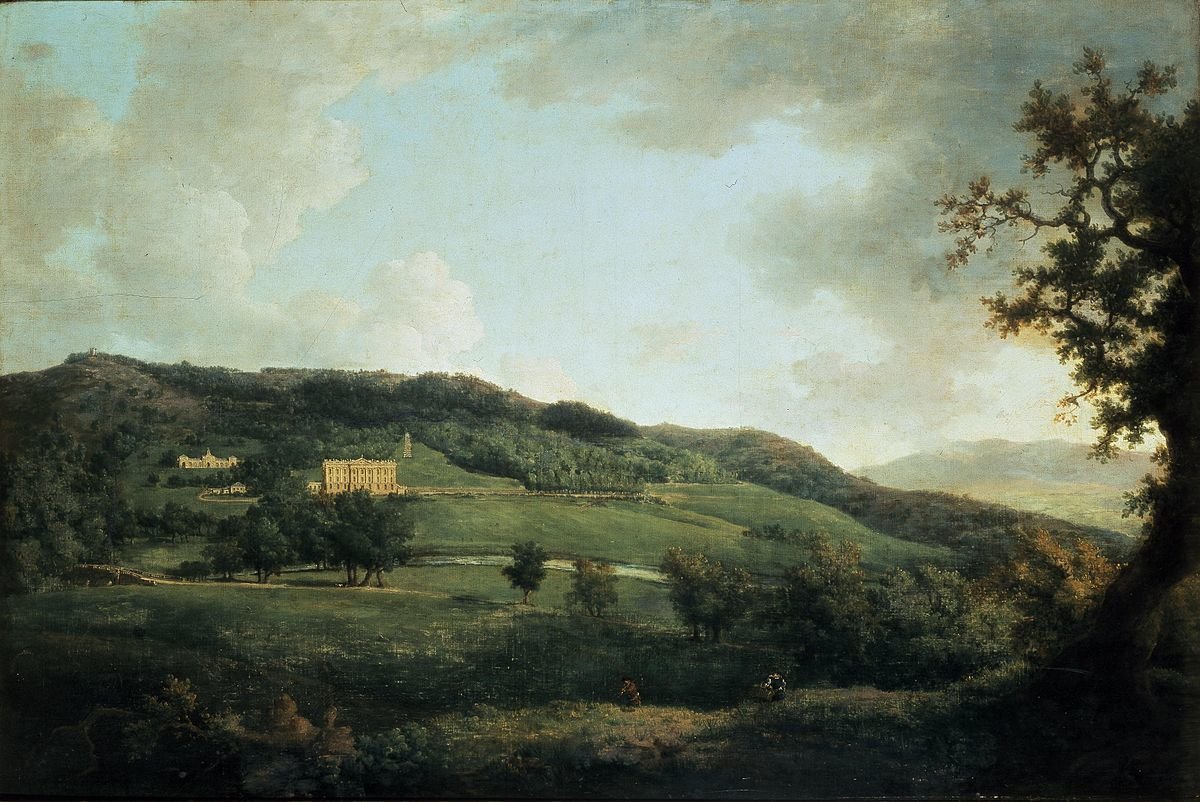
Chatsworth House in late 18c
Image source: Wikimedia Commons
By
graze animals
hunt rabbits
collect firewood
evicting people around the estate
abrogating their traditional rights to
| economic institutions | ||
|---|---|---|
| Secure for everyone |
Property rights | Insecure for majority of people |
| Free | Occupational choice |
Forced labor |
| Free | Entry of new businesses | Prevented by monopolies |
| Unbiased | System of laws | Biased for the powerful/rich |
| Promoted | Public service provision | Discouraged |
Economic Institutions
Inclusive
Extractive
Property rights
Secure for everyone
Insecure for
majority of people
Occupational choice
Free
Forced labor
Entry of
new businesses
Free
Prevented by
monopolies
System of laws
Unbiased
Biased for
the powerful / rich
Public service provision
Provided
Limited
That is...
?
"Blacks"
Local men across southern England
who have their face blackened
to kill animals, burn haystacks & barns, destroy fences & fish ponds
As a protest to Whigs' encroachment of their rights
Earl Cadogan's estate at Caversham
e.g.
Raided by blacks who killed 16 deer
on January 1, 1722

Raided again in July 1722
Black Act of 1723
Passed by Parliament (dominated by Whigs)
Create 50 new offences punishable by hanging
Having a blackened face
Soon several "Blacks" were arrested
e.g.
John Huntridge
Local resident outside the park of Sir Walpole's estate
e.g.

Rule of Law in action
At the trial for John Huntridge:
The jury: major landowners sympathetic with Walpole
But... Huntridge: found innocent
due to irregularities on how evidence was collected
Walpole himself presents evidence for his guilt
Whigs and Black Act in 19th-century U.K.
Franklin Roosevelt's attempt of court-packing in U.S.
How the rule of law protects inclusive institutions
Two examples:
Great Depression in U.S. during the 1930s
Unemployment rate: 33% in 1933
Industrial production falls by over 50% from 1929 to 1933
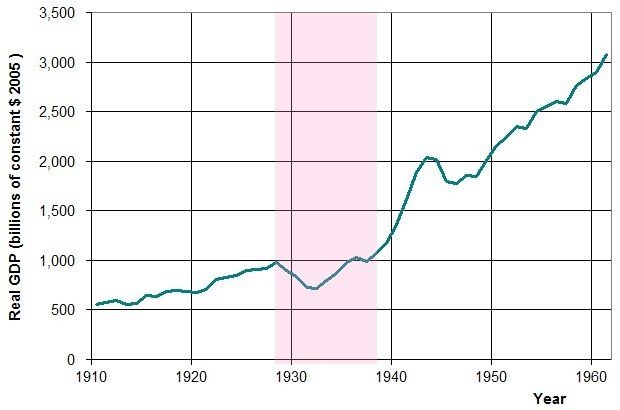
Data source: Johnson and Williamson (2008)
Image source: Wikimedia Commons
U.S. Real GDP in 1910-1960
(billions of constant 2005 US$)
Franklin D. Roosevelt

U.S. President for 1933-1945
Saved the U.S. economy from Great Depression with his New Deal policies
e.g.
Public investment in infrastructure
by hiring unemployed people
Supreme Court challenges New Deal policies
Title I of National Industrial Recovery Act
Restrain industrial competition
Give workers greater rights to form trade unions
Regulate working standards
Ruled unconstitutional on May 27, 1935 (Schechter Poultry Corp. v. United States)
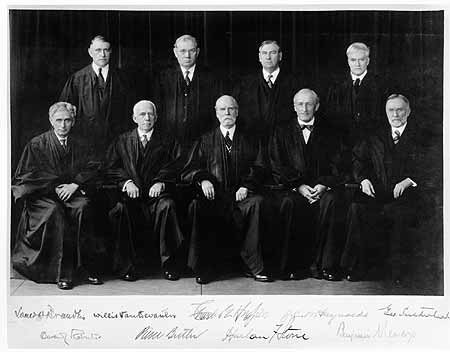
U.S. Supreme Court judges 1932-37
Image source: Wikimedia Commons
Supreme Court challenges New Deal policies (cont.)
Other New Deal acts whose constitutionality was challenged
Social Security Act
National Labor Relations Act
Strengthens workers' rights to organize unions
Introduces pensions, unemployment benefits, public health care, disability benefits
Roosevelt:
wants to replace conservative judges with his supporters

Roosevelt's attempt of court-packing
1936
Re-elected as president with 61% of votes
1937
Presents Judiciary Reorganization Bill
Compulsory retirement of Supreme Court judges at 70
President appoints up to 6 new judges
It would allow Roosevelt
to remove conservative judges opposed to New Deal
cf. Court-packing by presidents in Argentina (Lecture 10)
| economic institutions | ||
|---|---|---|
| Secure for everyone |
Property rights | Insecure for majority of people |
| Free | Occupational choice |
Forced labor |
| Free | Entry of new businesses | Prevented by monopolies |
| Unbiased | System of laws | Biased for the powerful/rich |
| Promoted | Public service provision | Discouraged |
Economic Institutions
Inclusive
Extractive
Property rights
Secure for everyone
Insecure for
majority of people
Occupational choice
Free
Forced labor
Entry of
new businesses
Free
Prevented by
monopolies
System of laws
Unbiased
Biased for
the powerful / rich
Public service provision
Provided
Limited
That is...
?
Rule of Law in action
Opinion polls: only 40% in favor of the bill
Louis Brandeis, a Supreme Court justice
opposed despite his support for New Deal policies
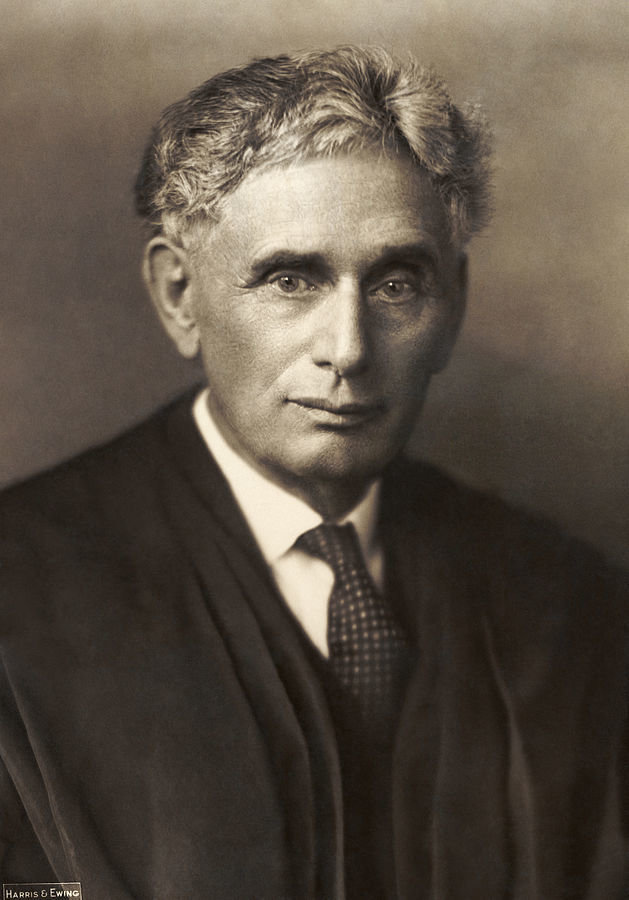
Image source: Wikimedia Commons
Democratic Party members in Lower House:
refused to deal with the bill
Senate: voted the bill down by 70 to 20
Supreme Court took down its charges against New Deal policies, though
Why the elite abide by the rule of law?
(pp. 307-309, 313, 332-333)
Temporary suspension
of the rule of law
A narrow group of people
may take control
of political process
in the future
Why didn't Whigs ignore the judicial process?
Why didn't Congress support Roosevelt's court-packing?
Because:
For Whigs in 18c U.K.
the narrow group of people: those trying to restore absolutism
Attempts to restore absolutism in 18c U.K.
James Francis Edward Stuart (James II's son)
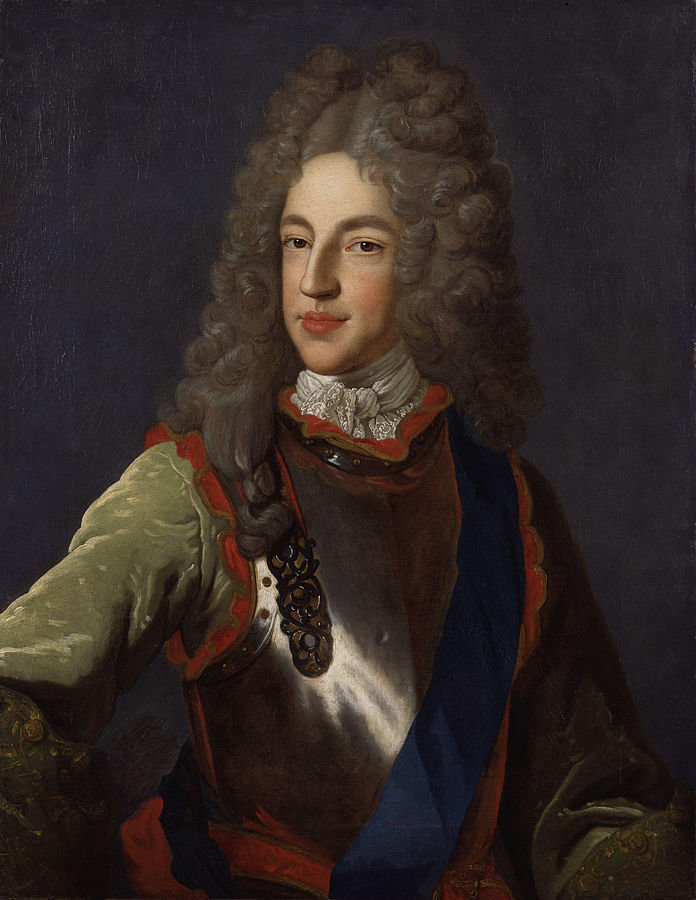
Recognized as lawful heir to English Crown by France, Spain, & the Pope
Attempts to take back the throne in 1708
(with support of French troops)
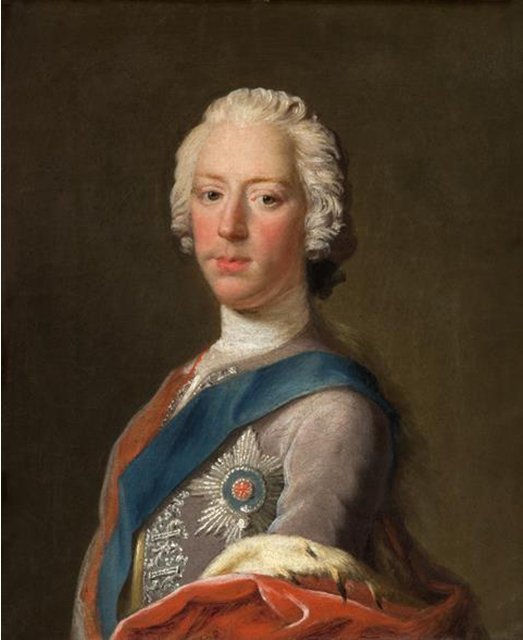
Charles Edward Stuart (the Young Pretender)
Gets all the way to Derby, 100 miles from London, in 1745 (Jacobite rising of 1745)
Their supporters: known as Jacobites
Whigs
Jacobites' attempt to restore absolutism
Suspend
the rule of law
Abide by
the rule of law
Succeed
Succeed
Fail
Jacobites' attempt to restore absolutism
Fail
Worst outcome for Whigs
Worst outcome for Whigs
Consider Whigs' decision on whether to suspend the rule of law
Whigs
Jacobites' attempt to restore absolutism
Suspend
the rule of law
Abide by
the rule of law
Succeed
Succeed
Fail
Jacobites' attempt to restore absolutism
Fail
Worst outcome for Whigs
Worst outcome for Whigs
Jacobites: more likely to succeed if the rule of law breaks down
Whigs
Jacobites' attempt to restore absolutism
Suspend
the rule of law
Abide by
the rule of law
Succeed
Succeed
Fail
Jacobites' attempt to restore absolutism
Fail
Worst outcome for Whigs
Worst outcome for Whigs
To avoid the worst outcome, Whigs abide by the rule of law
In the case of U.S. Congress:
Roosevelt, backed by those voters supporting him,
would have closed Congress in the future
President Alberto Fujimori of Peru
This path was actually followed in the 1990s by:
President Hugo Chavez of Venezuela
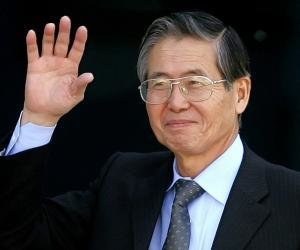
Image source: thefamouspeople.com

Image source: biography.com

Today's Road Map
Rule of Law
Free Media
Expansion of Inclusive Institutions
Black Act in 19th-century U.K.
Franklin Roosevelt's attempt of court-packing in U.S.
Robber Barons in early 20th-century U.S.
First and Second Reform Acts in UK
Today's theme:
What makes inclusive institutions survive?
Inclusive
institutions
Rule of law
Economic growth
with
income equality
Free Media
Free Media (pp. 309, 333-334)
Allowed to flourish by pluralism
English state stopped censoring the media
after Glorious Revolution of 1688
Let the public be aware of attempts to suspend pluralism
& help them organize protests against it
Example: Robber Barons in U.S. during late 19c and early 20c
e.g.
Robber Barons
Large trusts emerge in almost every sector of the economy in 1890s
Du Pont (gunpowder)
Kodak (camera)
International Harvester (agricultural machinery)
J.P. Morgan (banking)
Standard Oil Company (refined oil)
American Tobacco Company (cigarettes)
Robber Barons (cont.)
They attempt to monopolize the market
i.e. Challenge to inclusive economic institutions
CEOs of these large trusts: known as "robber barons"
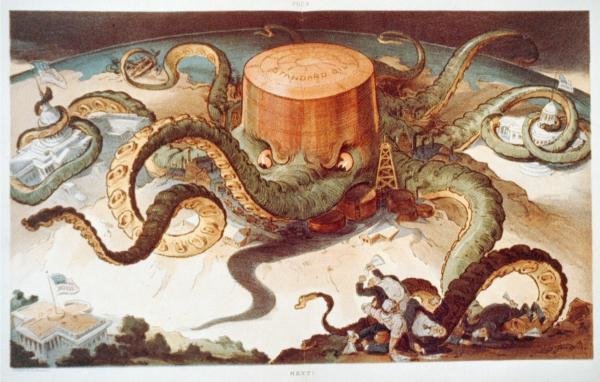
"Next!" Puck Magazine, 1904, depicting Standard Oil's monopolistic behavior over steel, copper, shipping industries and even Congress
Image source: ExplorePAhistory.com
| economic institutions | ||
|---|---|---|
| Secure for everyone |
Property rights | Insecure for majority of people |
| Free | Occupational choice |
Forced labor |
| Free | Entry of new businesses | Prevented by monopolies |
| Unbiased | System of laws | Biased for the powerful/rich |
| Promoted | Public service provision | Discouraged |
Economic Institutions
Inclusive
Extractive
Property rights
Secure for everyone
Insecure for
majority of people
Occupational choice
Free
Forced labor
Entry of
new businesses
Free
Prevented by
monopolies
System of laws
Unbiased
Biased for
the powerful / rich
Public service provision
Provided
Limited
That is...
?
Founded in 1867
Mobilize farmers
against unfair business practices
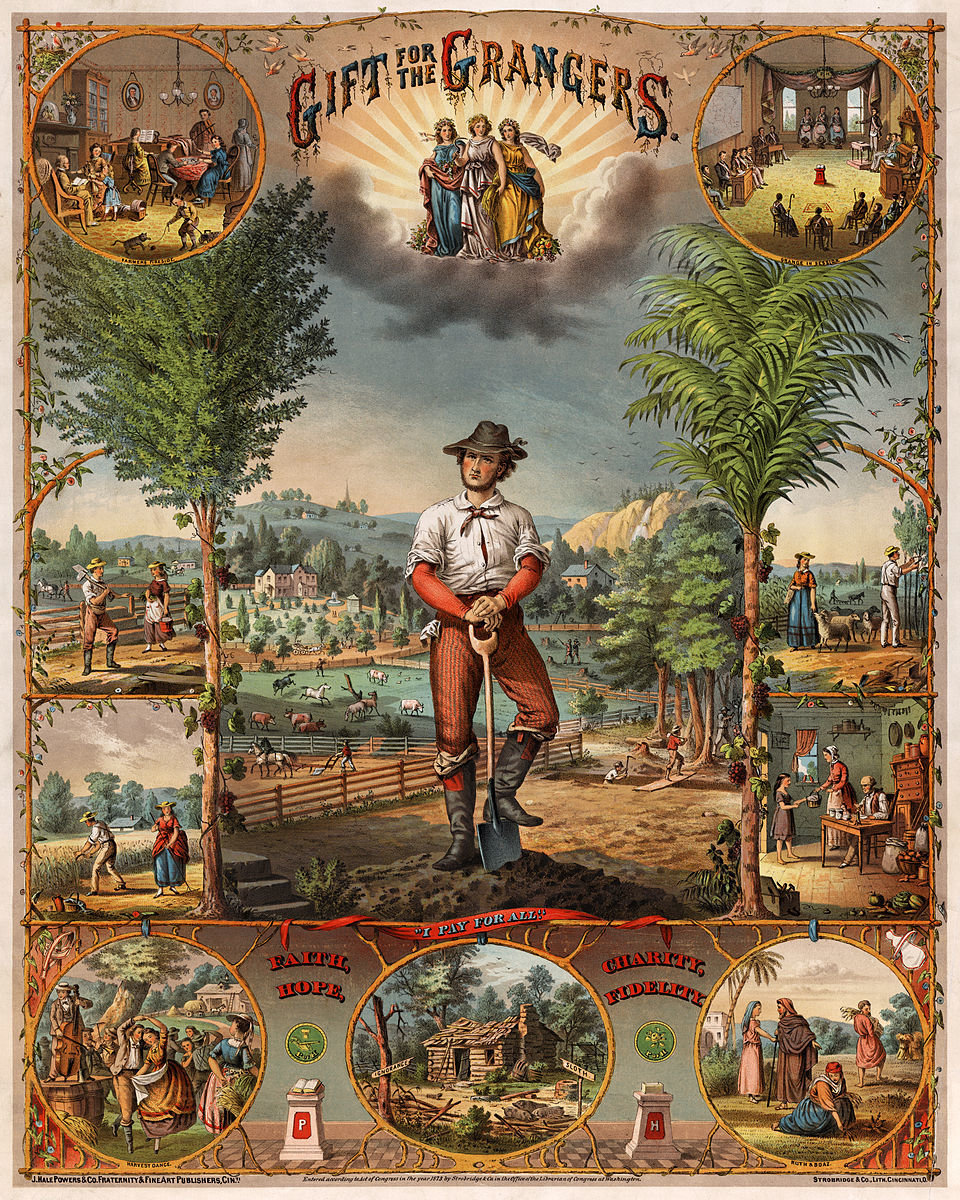
Promotional poster in 1873
Source: Wikimedia Commons
Won control of 11 midwestern state legislature in 1873-74
Farmers: driving force against Robber Barons
Nearly all 59 petitions on trusts sent to Congress until 1890:
submitted by farmer organizations
Famers' Union, Farmers' Alliance, Farmers' Mutual Benefit Association, Patrons of Animal Husbandry
e.g.
Farmers: driving force against Robber Barons (cont.)
formed to represent farmers' interests
People's Party
won 8.5% of votes in 1892 presidential election
William Jennings Bryan
took up their political agenda
as Democratic Party's presidential candidate
from 1896
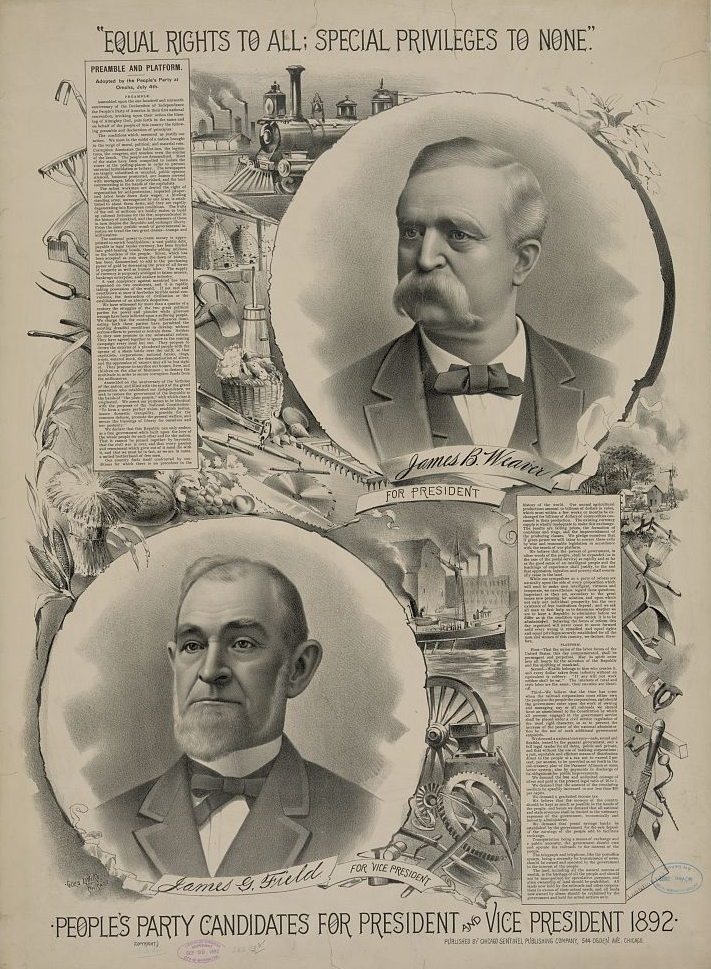
Poster for People's Party presidential candidates im 1892
Image source: Wikimedia Commons
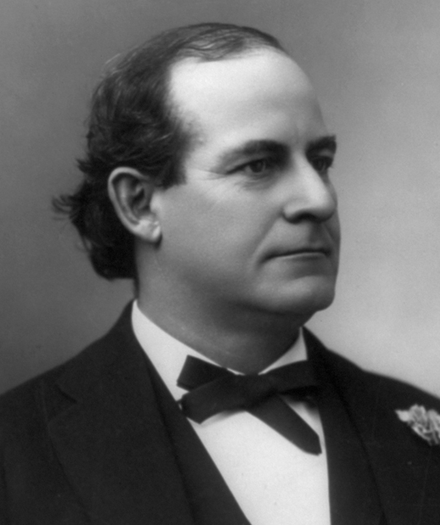
Image source: Wikimedia Commons
Federal anti-trust legislations
Sherman Antitrust Act of 1890
still a major part of U.S. antitrust legulation today
used by President Theodore Roosevelt to break up
Northern Securities Company, a railway trust by J.P. Morgan
Clayton Antitrust Act of 1914
enforced by newly-created Federal Trade Commission
strengthens the Sherman Act
Federal Reserve Board
created in 1913
to regulate monopolistic activities in financial sector
Role of mass media (known as "muckrakers")
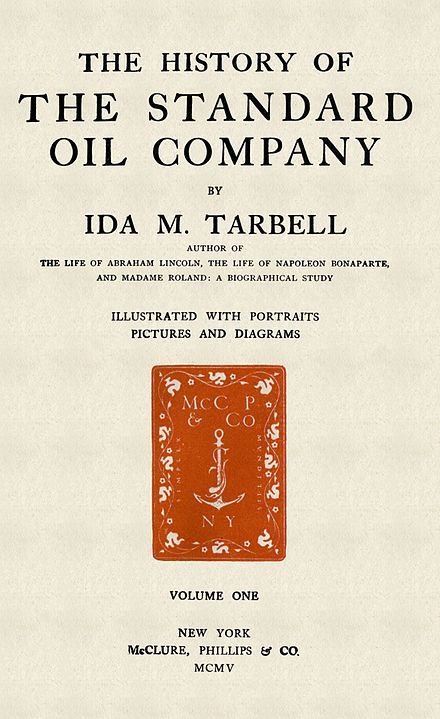
History of the Standard Oil Company
by Ida Tarbell in 1904
Leads to the break up of the company in 1911
as Supreme Court ruled that it violated Sherman Act
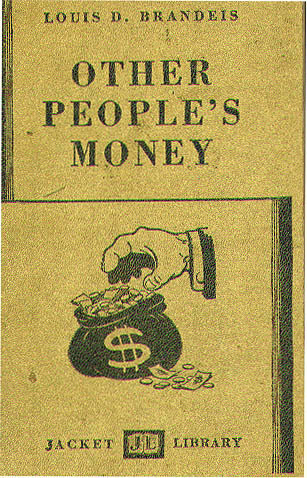
Image sources: Wikimedia Commons / Brandeis University Library
Other People's Money and How Bankers Use it
by Louis Brandeis in 1914
Publicizes findings from the Pujo Committee (1912-13)
which investigated the "money trust"

Today's Road Map
Rule of Law
Free Media
Expansion of Inclusive Institutions
Black Act in 19th-century U.K.
Franklin Roosevelt's attempt of court-packing in U.S.
Robber Barons in early 20th-century U.S.
First and Second Reform Acts in UK
Today's theme:
What makes inclusive institutions survive?
Inclusive
institutions
Rule of law
Economic growth
with
income equality
Free Media
Incentive for the elite under inclusive institutions
Economic growth
Coup against
inclusive institutions:
costly for the elite
(pp. 313-314)
Income equality
Clinging to power:
not very valuable
(pp. 314, 333)
Costly to repress
protests (pp. 309, 314)
Elite & masses
have equal
resources
Inclusive institutions
Elite allow inclusive institutions to expand
Example:
Franchise extension in U.K. during 19th-20th centuries
Social unrest in UK 1800-1830
Luddite Riots (1811-16)
Spa Fields Riots (1816)
Peterloo Massacre (1819)
Swing Riots (1830)
July Revolution (1830)
Protests against new technologies
Demonstrations for universal suffrage
British elite feel threatened by disenfranchised masses
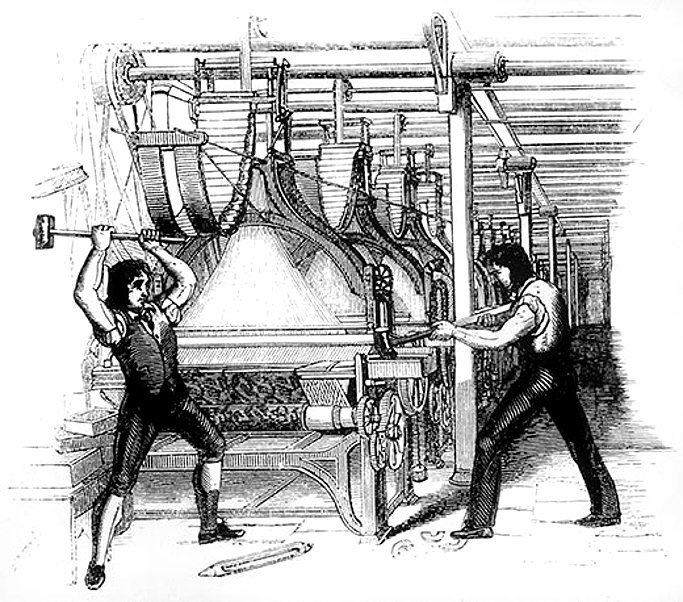


Political regime overthrown in France
First Reform Act of 1832
Extends the franchise from 8% to 16% of adult male population
Gives Parliament seats
for new industrializing cities (Manchester, Leeds, Sheffield)
Government's intention is far from democratization, though
"My object is not to favour, but to put an end to such hopes (as universal suffrage and secret ballots)... The principle of my reform is, to prevent the necessity of revolution..." (Prime Minister Earl Charles Grey)
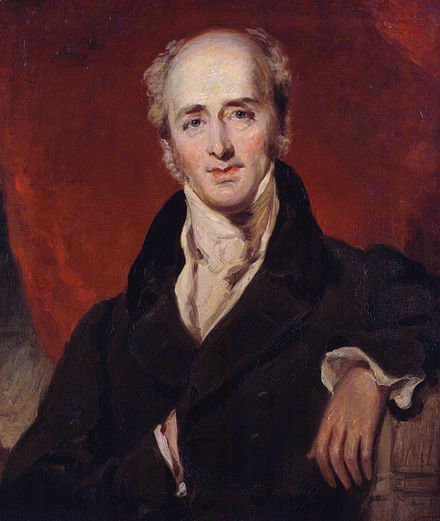
Chartist Movement
Campaigns for universal suffrage from 1838

Chartist meeting on 10 April 1848 at Kennington Common (source: Wikimedia Commons)
Hyde Park Railing Affairs in 1866
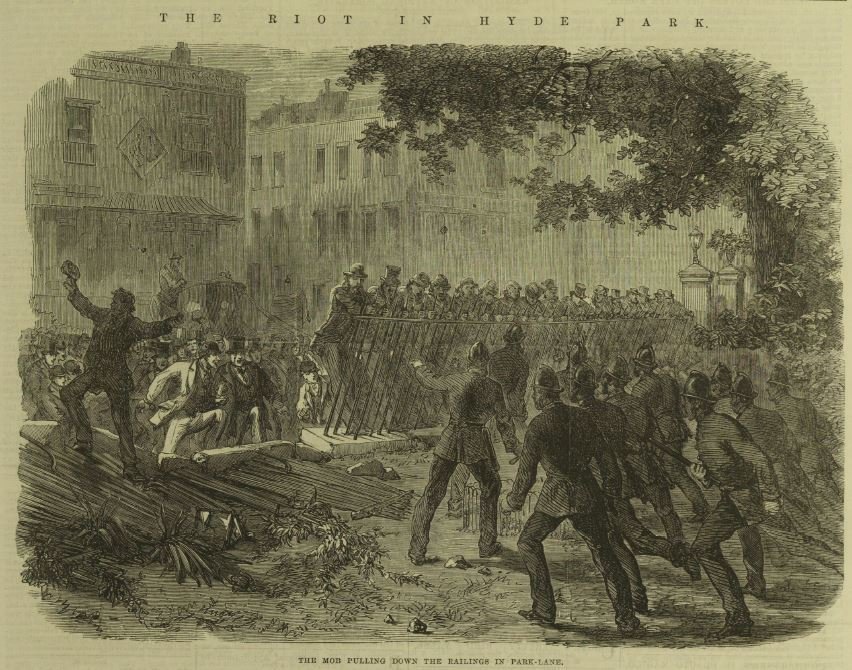
Demonstrators for universal suffrage
pushed down the railings to enter Hyde Park in London
Image source: Turbulent London
Illustration that appeared in Illustrated London News
Second Reform Act of 1867
Doubles the enfranchised population
Working-class voters form majority in all urban constituencies
Third Reform Act of 1884
Secret ballots: introduced shortly after
60% of adult males enfranchised
Representation of the People Act of 1918
Enfranchises all adult men over 21
& women over 30 paying taxes or married to tax payers
In 1928 all women over 21 enfranchised
Gradual reforms towards universal suffrage
Today's theme:
What makes inclusive institutions survive?
Inclusive
institutions
Rule of law
Economic growth
with
income equality
Free Media
Week 13
Chapter 6
Week 11
Chapter 14
United Kingdom
in 19c
United States
in early 20c
Republic of Venice
Roman Republic
Weeks 11-13: Survival of Inclusive Institutions
Botswana
US South
in the 1950s-1960s
Brazil
since the 1970s
Week 12
Chapter 11
Next week
Your to-do list until next class
Read Chapter 6 (except pp. 175-179)
and post questions on Prulu
1
2
3
Work on your term paper
Prepare questions on your term paper
Politics through the Lens of Economics (2018): Lecture 12
By Masayuki Kudamatsu
Politics through the Lens of Economics (2018): Lecture 12
- 2,261



